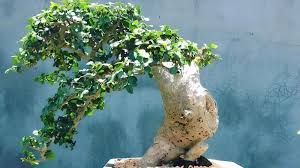
Throughout the history of China, the imperial family was considered the central authority of the nation, and its power was believed to be derived not only from military strength and political acumen but also from divine favor. Chinese emperors were seen as the “Sons of Heaven,” with a sacred responsibility to maintain harmony between the celestial realm and the earthly world. To ensure the prosperity of their reigns and safeguard their imperial authority, the royal family often turned to deities, who were believed to protect them from both physical and spiritual threats. These divine protectors played significant roles in the stories and myths surrounding the imperial court, offering their strength and influence to preserve the integrity of the throne.
The relationship between the royal family and their divine protectors was deeply rooted in Chinese mythology, and numerous tales describe how these gods intervened in times of danger or crisis. These deities were believed to shield the emperor, his family, and the entire empire from harm, ensuring that their rule remained unchallenged. This article will explore the fascinating stories of the gods and goddesses who were thought to safeguard the Chinese imperial family and the crucial role they played in the stability of the empire.
1. The Emperor and the Celestial Mandate
In ancient China, the emperor’s rule was not just a political or military affair; it was a spiritual one. The emperor was considered the Son of Heaven (天子, Tianzi), a title that signified a special connection between the emperor and the divine. The emperor’s mandate to rule was believed to be granted by Heaven (Tian), the supreme cosmic force. However, the emperor’s legitimacy could be questioned if Heaven withdrew its favor, which was often believed to happen when a ruler became unjust or failed to maintain balance in the empire.
To maintain the Mandate of Heaven and to ensure his rule remained secure, the emperor turned to the protection of deities who were believed to intervene in times of crisis, acting as guardians of the emperor’s spiritual and physical well-being. These divine beings were not only symbols of celestial power but were also seen as agents who could directly affect the fortunes of the royal family and the stability of the empire.
2. Guandi – The God of War and Protector of the Empire
One of the most prominent deities believed to protect the royal family was Guandi (关帝), also known as Guan Yu, a historical figure who was later deified. Originally a general during the late Eastern Han dynasty and the Three Kingdoms period, Guan Yu became a symbol of loyalty, righteousness, and martial prowess. After his death, Guan Yu was deified as the God of War and became one of the most important protective deities in Chinese folklore and religion.
In imperial China, Guandi was revered as the protector of the emperor and the royal family, particularly in times of war and conflict. His image, often depicted with a long beard and holding a guandao (a traditional Chinese pole weapon), was commonly displayed in royal palaces and military camps. Emperors would invoke his protection to ensure victory in battle and the stability of the state. Stories of Guandi’s divine intervention were widespread, with many recounting how he helped military leaders achieve victory or repelled invaders with his immense spiritual power.
Guandi’s protective influence extended beyond the military sphere. He was also regarded as the patron saint of merchants and was believed to bring prosperity and good fortune. The emperor would offer sacrifices to Guandi to secure both the defense of the empire and its economic well-being. In many temples dedicated to Guandi, the royal family’s relationship with the god was seen as a vital element of the emperor’s authority and legitimacy.
3. The Dragon God – Protector of the Imperial Family
In Chinese mythology, the Dragon (龙, Long) holds a significant position as a symbol of imperial power and protection. The dragon was considered a divine creature, representing strength, power, and good fortune. It was believed that the emperor, as the Son of Heaven, was symbolically linked to the dragon, which played an essential role in safeguarding the imperial family.
The Dragon God, often depicted as a multi-headed, serpent-like creature with the ability to control water and weather, was believed to possess the power to protect the emperor from natural disasters and other external threats. During times of drought or flood, emperors would conduct grand rituals to appease the Dragon God, ensuring that the empire’s crops would flourish and the people would be spared from calamities.
The dragon was also seen as a guardian of the imperial family’s lineage. Stories abound of how the dragon deity intervened to protect the lives of emperors and their heirs, particularly during periods of political intrigue or rebellion. In some accounts, the Dragon God would appear in dreams or visions to forewarn the emperor of potential dangers or provide divine guidance.
As a symbol of imperial power, the dragon was often incorporated into royal regalia, including the emperor’s robes, thrones, and ceremonial objects. The use of the dragon in these contexts reinforced the belief that the emperor was divinely protected and that his authority was derived from the celestial realm.
4. The Goddess Baosheng – Protector of Health and Well-Being
In addition to martial deities like Guandi, the royal family also turned to gods and goddesses associated with health and well-being. One such deity was Baosheng Dadi (保生大帝), the God of Medicine and protector of the emperor’s health. Baosheng Dadi was believed to have the power to cure ailments and prevent illness, and emperors would seek his protection to ensure their longevity and well-being.
Legend has it that Baosheng Dadi, originally a mortal physician during the Tang Dynasty, was so revered for his medical skills that he was deified after his death. He became widely worshipped across China, particularly in the imperial court, where he was invoked to cure diseases or safeguard the royal family from epidemics.
In imperial rituals, Baosheng Dadi was honored with offerings of herbs, medicinal plants, and incense. The emperor would consult the god’s priests and shamans to perform healing ceremonies and prayers, seeking the deity’s blessings for the health of the royal family. His protection was especially important in times of illness or plague, when the emperor’s health could determine the stability of the throne.
5. The God of Longevity – A Symbol of Eternal Rule
Another vital divine protector of the royal family was the God of Longevity (寿星, Shouxing), a deity associated with immortality and long life. The emperor’s reign was often linked to the idea of eternal rule, and it was essential for the ruler to secure divine favor to ensure both personal longevity and the continued prosperity of the empire.
The God of Longevity was often depicted as an elderly man holding a peach, a symbol of immortality, and was commonly worshipped in imperial rituals designed to promote health and long life. Emperors would honor Shouxing, especially during significant events such as their birthdays or during times of dynastic transition, in hopes of securing a long and prosperous reign.
Stories of the God of Longevity protecting the emperor’s life were passed down through generations. In some tales, the god would intervene in moments of great peril, saving the emperor from assassination or illness. In others, the god’s blessings were seen in the flourishing of the empire, with long and peaceful reigns marked by prosperity and stability.
6. The Jade Emperor – Supreme Protector of the Imperial Family
At the top of the Chinese pantheon stands the Jade Emperor (玉皇大帝), the supreme ruler of Heaven and the universe. As the ultimate divine figure, the Jade Emperor was revered as the protector of the emperor, ensuring that his reign was in alignment with cosmic order.
The Jade Emperor’s role in imperial protection extended beyond mere symbolism. In times of national crisis, the emperor would turn to the Jade Emperor for divine intervention. Whether it was to defeat rebels, prevent natural disasters, or safeguard the imperial family from internal strife, the Jade Emperor was seen as the final arbiter of the emperor’s fate.
During certain ceremonies, the emperor would pay homage to the Jade Emperor, offering sacrifices and prayers. These rituals were conducted to affirm the emperor’s connection to the heavenly realm and to ensure that his reign would continue under the Jade Emperor’s protection.
7. Conclusion: The Divine Guardianship of the Royal Family
The stories of deities who protected the Chinese imperial family highlight the deeply spiritual nature of imperial rule in ancient China. The emperor was not simply a political figure; he was a divine representative on Earth, and his rule depended on his ability to maintain a strong connection with the gods. The divine protectors of the royal family, including Guandi, the Dragon God, Baosheng Dadi, the God of Longevity, and the Jade Emperor, played a crucial role in ensuring the stability of the throne and the prosperity of the empire.
These deities were more than just spiritual figures; they were the very embodiment of the emperor’s divine mandate to rule. Their stories of protection, intervention, and blessings reinforced the idea that the emperor’s legitimacy was deeply rooted in the favor of the gods. Through these divine guardians, the emperor’s reign was not only maintained but also strengthened, ensuring that the empire would continue to thrive under the watchful eyes of the celestial realm.









